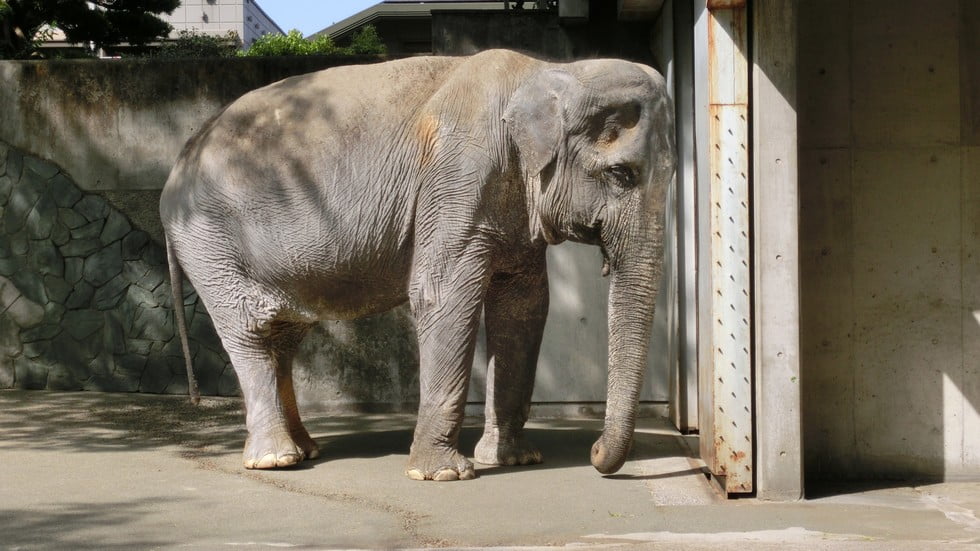Hanako the Elephant
Last weekend, the death of Hanako the elephant at Inokashira Zoo in Japan was reported. She was old even by wild elephant standards, and at 67 she was Japan’s oldest elephant in captivity. Hanako was precious to the zoo and her keepers and while her death is sad, many concerns over her living conditions and welfare had been expressed. More recently the zoo was visited by an elephant expert who encouraged enclosure changes that would make Hanako more comfortable and enrichment opportunities that would stimulate her intelligent and inquisitive mind. While the zoo did try to improve her living conditions, sadly Hanako, who for most of her long life had lived in solitude with little to stimulate her, became quite afraid of any new changes made to her enclosure and sadly never got a chance to appreciate the efforts the zoo was making.
An elephant’s highly intelligent and social nature make them notoriously difficult to provide for in captivity. Large enclosure space, suitable environmental enrichment, appropriate temperature control, social interactions and appropriate medical care are critically important to ensure high standards of welfare, but even then, elephants can suffer in captivity unless under expert care.
Elephants are biologically and behaviourally made for walking in very large spaces as they are active for most of the day, and they must be provided with complex, stimulating enclosures that encourage species-typical movements and behaviours. They have evolved to live in warm climates and while they can tolerate relatively brief exposure to cold conditions, longer exposure forces them to stay indoors which can lead to frustrating and boredom. However most importantly elephants needed companionship. Appropriate social interactions are critically important to all elephants, where they learn, play and form strong bonds with each other in a natural herd structure, and these social interactions can provide the most enriching and natural environment for captive elephants.
Every zoo and everyone who looks after animals has a duty of care to its animals; meaning they have a responsibility to provide for those animals in a way which prevents harm and ensures an animal’s welfare is positive. These beautiful animals deserve our respect and a lack of appropriate care leads to frustration, boredom, aggression, poor health and consequently a long dull life. With news that more elephants will be arriving in Japan’s zoos in the near future, we strongly encourage Japanese zoo authorities to ensure all zoos prioritise elephant welfare and only keep them if they can truly provide for all their specific needs.
RIP Hanako.
Image © Flickr/uniunitwins





